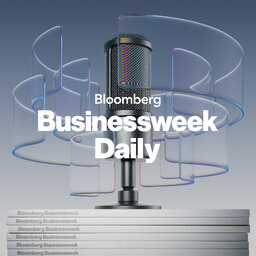E-Commerce Outlook, DNA/RNA Sequencing
Watch Carol and Tim LIVE every day on YouTube: http://bit.ly/3vTiACF.
Travis Hess, CEO of Bigcommerce, discusses providing software for retail and e-commerce platforms. Gordon Sanghera, Co-Founder and CEO of Oxford Nanopore Technologies, talks about opportunities for DNA and RNA sequencing from the JPM Health Conference.
Hosts: Carol Massar and Tim Stenovec. Producer: Paul Brennan.
 Bloomberg Businessweek
Bloomberg Businessweek


